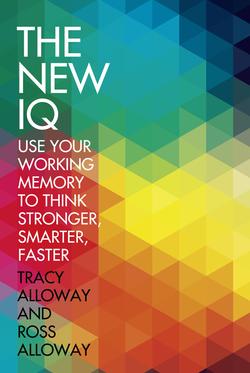Читать книгу The New IQ: Use Your Working Memory to Think Stronger, Smarter, Faster - Tracy Alloway - Страница 51
Less Is More
ОглавлениеAt the end of this chapter, we share some simple exercises to help you strengthen your working memory, but in the meantime let’s take a quick look at a few coping strategies to improve both working memory and happiness.
In Chapter 2, we introduced you to our friend Sam who struggled to wade through all the possibilities after losing his job. Too many choices result in psychological stress and unhappiness. A 2010 study by Hazel Markus and Barry Schwartz published in the Journal of American Consumer Research backed this up, finding that although American culture venerates choice and freedom, people often become paralyzed by unlimited choice and are less happy with their decisions as a result.
As you saw in Chapter 2, an excess of choice can overload your working memory and lead to lots of negative consequences, including an increase in stress and anxiety, an inability to make a decision, and even ruminating over whether you’ve made the right choice. So one way to improve your happiness is to minimize the number of choices you have to make. At the office, for example, you might want to dedicate specific chunks of time to specific tasks and open only one program on your computer screen rather than toggling between multiple windows and switching back and forth between options.
At home, many of us feel that rushing our children off to five activities a day will improve their lives and make them happier. The reality is that offering your children too many choices of extracurricular activities may overwhelm them and reduce how well they perform in the activities they do pursue. By choosing a few activities and focusing on some relaxing downtime in which the family reconnects, there will be less working memory overload, and everyone will feel less stressed and happier.
Limiting your consumer choices will help too. At the supermarket, interesting packaging or new products compete for our attention. Sometimes it’s hard to decide which of the ten different brands of the same product to buy. In order to limit the number of choices and not get overwhelmed, make a list of exactly what you need before you go to the market, and stick to it.
Our friend Sam who fell into depression because he couldn’t decide what next job to pursue, found that narrowing his choices helped immensely. After a few weeks of his malaise, Sam’s wife encouraged him to seek the advice of a career coach, who helped him focus on one or two more immediate tasks and goals. His working memory was then able to better digest the information he had to consider, his stress lifted, and he became happier. He was able to make a list of potential jobs and started sending out his newly updated CV. Two weeks later, he landed an interview.
